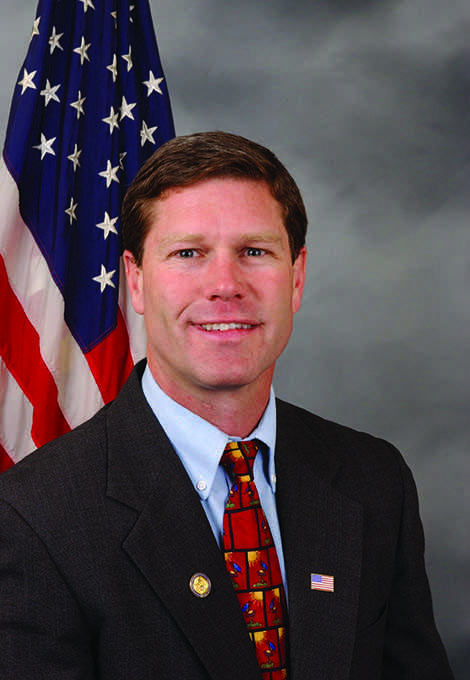Congressman Ron Kind announces math and physics grant
Eleven UW-Eau Claire students will attend conference in May
April 2, 2014
UW-Eau Claire math professor Ursula Whitcher thought it would be cool for undergraduate students in the math and science departments to attend a big research convention in Canada this spring.
On March 24, that thought became a reality as Rep. Ron Kind (D-Wis.) pledged a $14,905 grant for Whitcher and the university to send 11 students to attend the PIMS Undergraduate Workshop in Supersymmetry, held at the Pacific Institute for the Mathematical Sciences at the University of British Columbia May 25-31.
Whitcher said it’s a big step for the university to send promising math and science students to a conference complete with peer collaboration and outside-classroom learning.
“It’s a huge deal, especially for students who are thinking about maybe going to graduate school and maybe doing research themselves someday,” Whichter said. “It’s really important just to get the broader perspective.”
The grant is through the National Science Foundation, a group, along with National Institution of Health, that has been facing budget cuts in the last couple of years.
Kind, a Wisconsin state representative since 1996, has been fighting these cuts because staying innovative in math and science education is vital to compete in today’s global market, he said. But he is encouraged to see academic institutions take on this challenge.
“This public type of investigation and research is the type of seedcorn I think we need to be planting for new discoveries, new breakthroughs, and to help our students be competitive in the global economy,” Kind said. “It should be one of our priorities as a nation to continue this basic research funding and competitive grants to universities like Eau Claire so that we’re developing the skills students need in the global marketplace today.”
The 11 students will get a hands-on experience in the seven-day excursion to the great north. The workshops will combine lectures on the mathematics of supersymmetry, emphasizing graph theory and algebraic structures with problem-solving sessions. Sylvester James Gates of the University of Maryland, recipient of the National Medal of Science, and someone Whitcher lobbied to make the program happen will be the keynote speaker.
Student Body President Bryan Larson said it is encouraging to see students at Eau Claire get support to pursue academic research and opportunities outside of the classroom from outside sources.
“This is already a campus that clearly values these kinds of interactions and these kinds of experiences for our students, and we have a student body that really values that,” Larson said. “It’s really great to see that emphasis and that focus coming in from the outside now with this grant. I’m appreciative of (Kind’s) support and recognition of our students.”
According to NPR, the U.S. saw a decline in math and science scores in the last calendar year. Kind, who has also worked as part of the America COMPETES Act to encourage technology and scientific learning in classrooms, said it is key to for students in these fields to become immersed in them because of the world’s current trends.
“These are the fields that we have to be competitive in, that students should be given the opportunity to pursue their course of study, because this is where the world is moving today,” Kind said. “We are much more integrated globally than ever before, and that’s only going to increase.
So the more we expand our knowledge of the how the world ticks and what our place in it is.”
Whitcher said this grant reaffirms the university’s commitment to hands-on research for undergraduate students to help Kind and others fight to keep the U.S. on pace with math and science education.
“That’s something, in the math department especially, that is really important to us,” Whitcher said. “I think it shows that we have a big tradition here of finding interesting problems here for students to work on, and that’s something that can be important even on a nation-wide level.”

